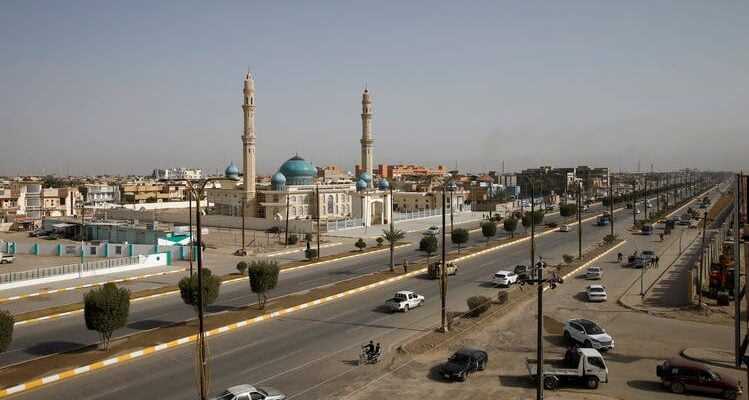Where four Blackwater employees were lynched in 2004, families now stroll. After years of war, Falluja has experienced a faint recovery. The driving force is the Iraqi parliamentary speaker Mohammed al-halbusi.
A lot has happened in Falluja since the Islamic State (IS) extremist was driven out. Many roads have already been repaired and new districts are being built on the outskirts.
The entire office of Falah Hassan al-Issawi in Fallujah is gleaming in white: whitewashed walls, white tiled floors with gold stripes and a cream-colored leather couch. And right in the middle of it sits Issawi in a pristine white dishdasha, the Arabian man’s dress. His mood is as radiant as the interior and his clothes. “My business is doing well,” says the real estate agent. Because after the devastation of the war, the need for new houses in the city sixty kilometers west of Baghdad is enormous.
Falluja was once a stronghold of underground fighters, then Qaeda in Iraq and finally the Islamic State (IS). Today the city and the surrounding province of Anbar are among the safest areas in Iraq. “We used to lock the doors behind us at six in the evening,” says Issawi. “Today you won’t hear a shot in Fallujah.” Security has given the city a gentle boost. If you have money, you no longer invest it abroad, but here.
In some streets there are still houses with shattered facades lined up next to each other, with ruins in between. According to Issawi, about 3,000 houses were completely destroyed by the fighting, and many more were partially destroyed. But instead of using explosives like in the past, houses, shops and roads are now being built in Falluja. A new residential area and a college are being built on the outskirts of the city, while in the center apartment blocks are being raised and roads repaired.
As in other Iraqi cities, residents of Fallujah are complaining that the government failed to pay out the compensation it promised after defeating IS four years ago. But those who work in the public sector receive cheap government loans for housing construction. This gives the broker Issawi a good order situation. He sells more than 150 properties a month, says the 52-year-old. “That’s very good.”
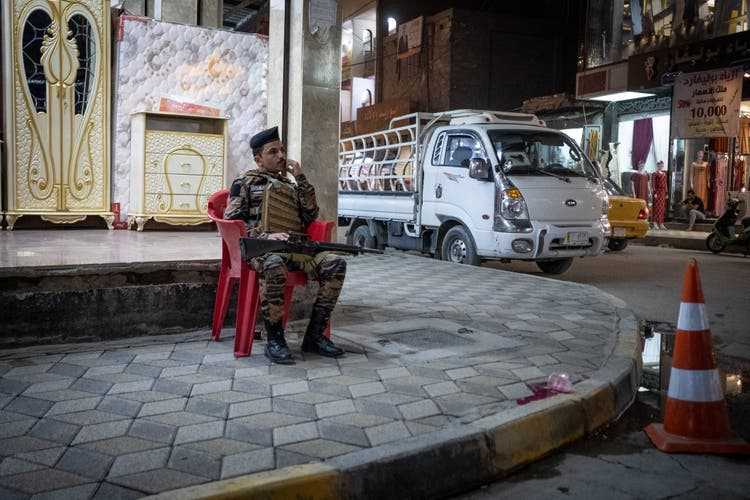
Long a stronghold of Sunni extremists, Falluja is now considered one of the safest cities in the country.
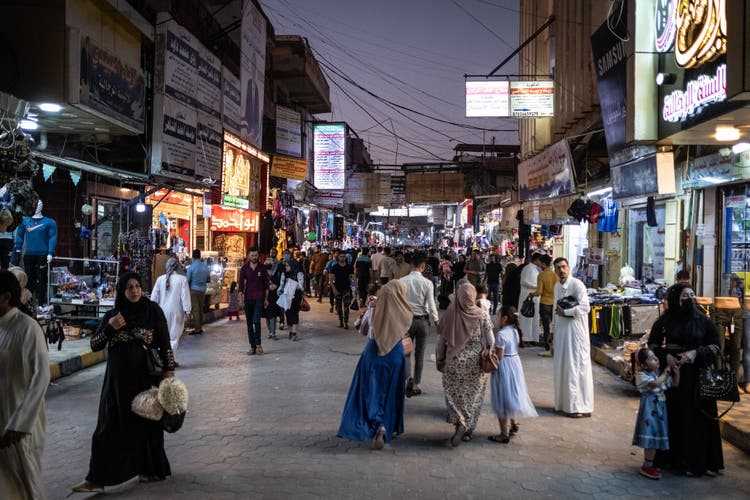
In other cities of Anbar, like here in Ramadi, things have returned to normal after years of war.
Losing fights against extremists
For many Iraqis, Anbar and Fallujah, as it is popularly known as the City of Mosques, have been synonymous with terror and violence for years. Most residents of the province, which extends to the borders with Saudi Arabia, Jordan and Syria, are Sunnis. Under Saddam Hussein, the minority enjoyed disproportionate power. After the despot was overthrown in 2003, it was marginalized by the Americans and the Shiites, who form the majority in Iraq.
Sunni anger, American mistakes, and Syrian and Gulf state support for the insurgency allowed Qaeda in Iraq to expand into Anbar. Only when the Americans forged an alliance with local tribes were they able to defeat the extremists. However, after the withdrawal of American troops in 2011, the Iraqi government gambled away its success when it terminated the alliance with the tribal fighters.
In early summer 2014, the IS extremists therefore had an easy time conquering the province. It took more than two years before the Iraqi troops managed to defeat the extremists in costly battles. But only because they were backed by the American-led anti-IS coalition. Many in Falluja attribute the reversal that followed to one man: Mohammed al-halbusi, Iraq’s speaker of parliament.
With pragmatism and a sense of power
Halbusi, who was born near Falluja in 1981, first went into the private sector after completing his studies in civil engineering. As head of a construction company, he made a fortune with orders from the Americans. In cooperating with the Americans, he displayed a pragmatism that later shaped his political style.
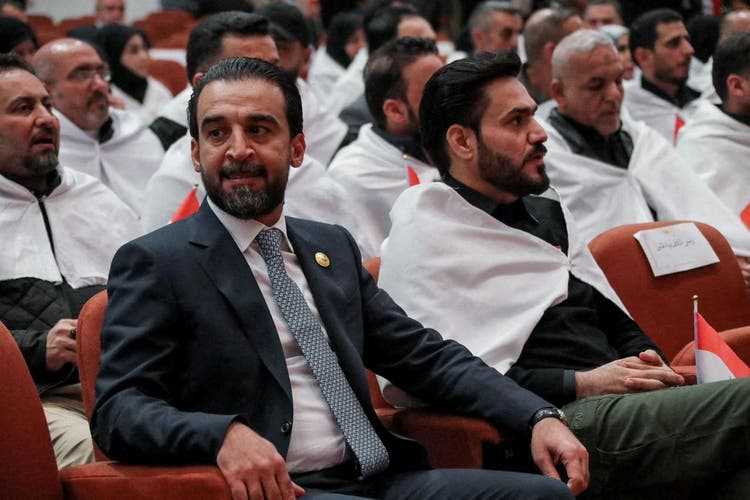
As governor of Anbar province, Iraq’s parliament speaker Mohammed al-halbusi has emphatically campaigned for the reconstruction of his home region.
The now 41-year-old with the gelled hair and the trendy beard was first elected to parliament seven years ago, three years later he became governor of Anbar. In 2018 he showed that he has no fear of contact with his political rivals: Thanks to an alliance with a pro-Iranian Shiite faction, he secured the election as speaker of parliament.
While most of the other Sunni politicians before him collected their allowances and didn’t show up again, Halbusi took care of his electorate in Anbar. He brought government money and investments into the province, built a new expressway, a new football stadium and public buildings. He also gave new splendor to the Corniche on the Euphrates.
Here in the spring of 2004 the misery of Falluja began. At that time, Iraqi insurgents lynched four employees of the notorious American security company Blackwater and hung the partially charred bodies on the steel bridge over the Euphrates. Today there is a paved promenade with benches that attracts many families and strollers on weekends.
The voters thanked Halbusi for his commitment. In last October’s general election, his Alliance for Progress (Takaddum) won 37 seats. The secular politician not only left his Sunni competitors far behind, who had shaped politics for more than a decade with their confessionalism. His party also became the second largest faction, and Halbusi was confirmed as parliament speaker on 9 January.
Tranquility, peace and a modern life
He now has many followers in Fallujah, including auto mechanic Abdul-Muheimin Taha al-Alwani. “Halfusi is great,” says the 47-year-old. In the industrial area of Falluja, where he has his workshop, the traces of the heavy fighting are still visible everywhere: only the skeletons of some buildings remain, the walls of others have blown away or the facades have been shot through. There are also huge holes in the roof of Alwani’s car workshop.
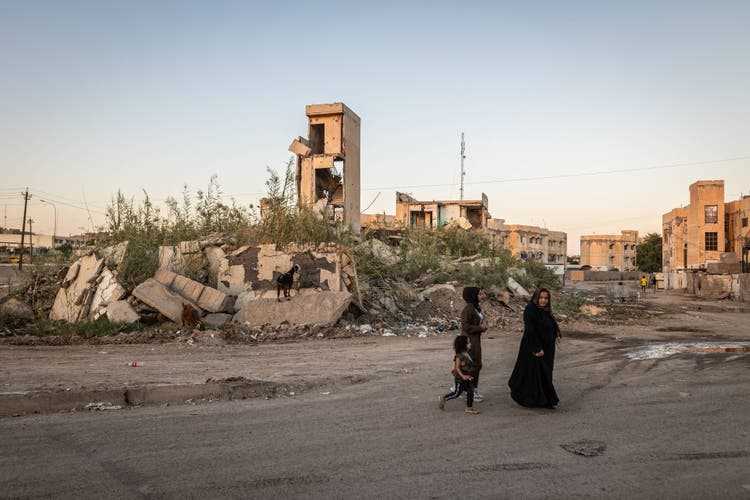
Destroyed houses in Ramadi and other cities of Anbar still bear witness to the devastation of the war.
The car mechanic has had to flee his hometown three times since 2003. First, Qaeda and then the IS fighters entrenched themselves in the industrial area and built the explosive devices and car bombs with which they terrorized the capital. IS fighters gave Alwani’s family a choice: “You either work with us or you leave.” Otherwise they would behead his brother, a captain in the Iraqi army. The family fled to the Kurdish state in northern Iraq, returning to Falluja just over three years ago.
“We’re exhausted, we just want peace,” says Alwani. Many wish for peace and quiet in the former troubled region. The boys in particular also long for a modern lifestyle with shopping centers and cafés, as they got to know during the years in Kurdistan or in exile in Turkey. If anyone can fix it, it’s Halbusi, Alwani is sure of that. “Halfusi has a strategic plan,” says the mechanic. “If he keeps it up, everything will be fine.”
Issawi is also convinced of this. “Halfusi brought us security. He’s a good, honest man and works hard,” says the broker. Observers trust him to help the Sunnis regain their place in Iraq and sideline the radical Islamists in their own ranks. He does not lack a sense of power or pragmatism. Halbusi secured his re-election as parliament speaker with the votes of the faction of the populist Shiite cleric Moqtada al-Sadr and those of the Kurds. Issawi likes it: “There is no second like Halbusi.”
